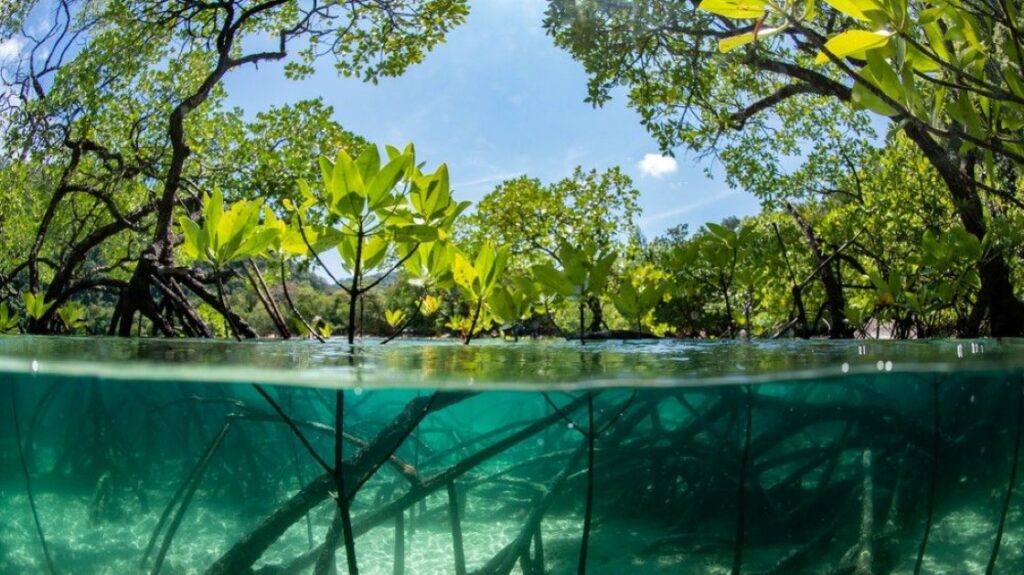The Government of Mexico announced its support for the global initiative Mangrove Breakthroughjoining 35 other national and state governments committed to the conservation and restoration of these ecosystems.
With this accession, the country strengthens its environmental commitment within the framework of the preparation for the COP30 of the United Nations Framework Convention on Climate Change (UNFCCC).
The initiative Mangrove Breakthrough aims to mobilize US$4 billion by 2030 and restore 15 million hectares of mangroves globally. In this context, the support of Mexico comes at an important moment to strengthen the mitigation actions of the climate change and the protection of the coastal ecosystems.
Alicia Bárcena IbarraThe Secretary of the Environment and Natural Resources, stressed the importance of this adhesion, since the conservation and restoration of the mangroves is a national priority.
"We are very interested in participating and not only that, but in leading governmental actions, even with other sectors of the country. This issue of mangroves and ecological management, and the National Restoration Program that we want to carry forward is transversal to the entire Mexican Government," he commented.
According to the Food and Agriculture Organization of the United Nations (FAO), Mexico is the fourth country in the world with the greatest extension of mangroves, and the second in Latin America and the Caribbean, with more than 905,086 hectares.
Despite the fact that approximately 76% of these ecosystems are under some type of protection, according to the Global Mangrove Watch there has been a loss of more than 44,000 hectares of mangroves since 1996. This decline is primarily attributed to changes in land use, coastal development, aquaculture, and the effects of the climate change.
"We know that they are key ecosystems, that even for the compensation of greenhouse gases mangroves are six times more efficient than any other type of ecosystem and, therefore, it is so important that we can really move in this direction," stressed the federal official.
Jorge Rickardsgeneral manager of WWF Mexico, noted that the government's support reflects the growth of the mangrove movement in the country, from local communities to the highest levels of government decision making.
While Carlos CorreaAmbassador for the Advancement of Mangroves, said that Mexico's approval is proof of the country's commitment to restoring coastal ecosystems and meeting international goals.
Towards sustainable financing
Mexico's membership coincides with the holding of a workshop in Mexico City, organized by the Global Mangrove Alliancethe Mexican Alliance for Ecosystem Restoration (AMERE) and the Mangrove Breakthrough Hub.
This event brought together government representatives, researchers, NGOs, companies and financial institutions to draw up a road map to mobilize financing for mangrove conservation projects in the country.
Ignace Beguin Billecocqexecutive director of the Mangrove Development SecretariatMexico's support represents a fundamental milestone in the quest to increase the flow of capital towards the protection of these ecosystems, he said, in the context of the presentation of new Contributions Determined at the National Level (NDC) under the Paris Agreement.
The NDC Working Group of the Mangrove Breakthrough is focused on providing technical support to countries to incorporate clear, science-based strategies with measurable indicators into their climate commitments.
Source: WWF Mexico


